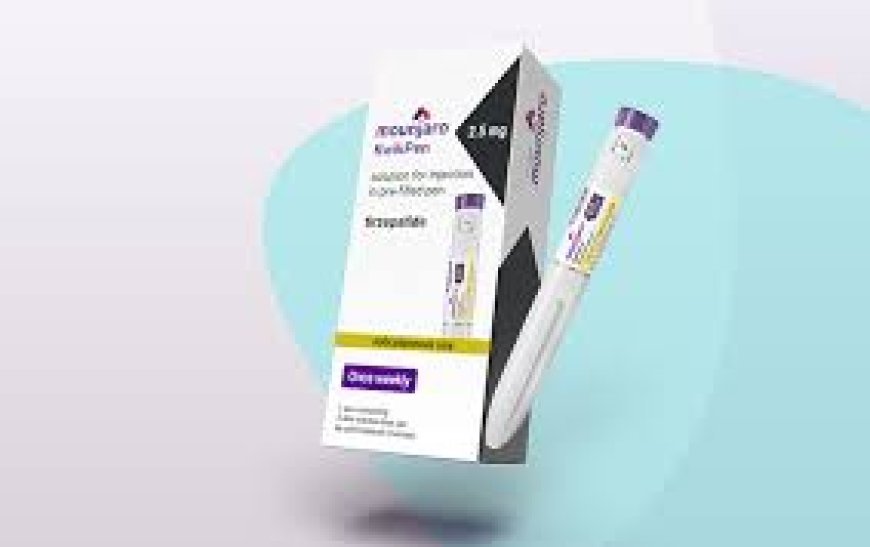Mounjaro Injection in Dubai: Is It the Right Choice for Non-Diabetics Seeking Weight Loss?
The rise of GLP-1 medications for weight loss has sparked intense public interest, and among these, the Mounjaro injection in Dubai stands out due to its unique mechanism and powerful results. Although initially approved for the treatment of type 2 diabetes, many non-diabetic individuals are now exploring Mounjaro as a weight loss tool. But is it safe, effective, and appropriate for people without diabetes? This article provides an in-depth analysis to help you make an informed decision.

Understanding Mounjaro: More Than a Diabetes Drug
Mounjaro (tirzepatide) is a once-weekly injectable drug that acts on two critical hormones:
-
GLP-1 (Glucagon-like peptide-1)
-
GIP (Glucose-dependent insulinotropic polypeptide)
This dual-agonist action helps regulate blood sugar levels, delay gastric emptying, and reduce appetite—making it effective not just for glycemic control but also for fat reduction and body mass management.
Why Non-Diabetics Are Considering Mounjaro
Although Mounjaro was created to manage type 2 diabetes, it’s the drug's impressive weight loss results that have captivated non-diabetic users. Clinical trials have shown up to 20% total body weight loss in participants, even among those who are not diabetic.
Motivations for Use in Non-Diabetics
-
Obesity or overweight status
-
Inability to lose weight through diet and exercise alone
-
Pre-diabetes or metabolic syndrome
-
Postpartum weight retention
-
Hormonal weight gain (e.g., PCOS or menopause)
Clinical Research Supporting Weight Loss in Non-Diabetics
Several landmark trials have highlighted Mounjaro’s weight loss benefits:
-
SURMOUNT-1 Trial: Conducted on non-diabetic adults with obesity or overweight. Results showed an average weight loss of 15–20% over 72 weeks.
-
Participants experienced improvement in cardiovascular and metabolic markers even without having diabetes.
This evidence has led many Dubai clinics to offer Mounjaro injection in Dubai for off-label weight management in non-diabetics.
Is It Safe for Non-Diabetics?
Medical Supervision is Crucial
While Mounjaro is generally safe, using it off-label requires careful monitoring. Non-diabetics are more susceptible to:
-
Low blood sugar (especially if fasting or on restrictive diets)
-
Gastrointestinal side effects
-
Electrolyte imbalances due to reduced food intake
Doctors in Dubai typically assess a patient’s BMI, metabolic profile, and lifestyle before prescribing Mounjaro for weight loss.
Side Effects to Watch For
Common side effects include:
-
Nausea
-
Vomiting
-
Diarrhea or constipation
-
Dizziness
-
Headache
-
Appetite suppression
These effects are most noticeable in the early weeks and often subside as your body adjusts.
How Mounjaro Compares to Other Weight Loss Medications
| Medication | Hormone Target | Average Weight Loss | Frequency | Approved for Obesity |
|---|---|---|---|---|
| Mounjaro | GLP-1 + GIP | Up to 20% | Weekly | Off-label (non-diabetic) |
| Ozempic | GLP-1 | 10–15% | Weekly | Off-label (non-diabetic) |
| Wegovy | GLP-1 | 15–17% | Weekly | Yes |
| Saxenda | GLP-1 | 5–10% | Daily | Yes |
Mounjaro offers the highest reported average weight loss among these drugs, making it a compelling choice.
Who Should Consider Mounjaro for Weight Loss?
Mounjaro may be appropriate for you if:
-
Your BMI is ≥27 with comorbidities or ≥30 with no other conditions
-
You've failed to lose weight with traditional methods
-
You're under medical supervision and willing to attend regular checkups
-
You’re not pregnant, breastfeeding, or planning to conceive soon
-
You’re not diagnosed with thyroid tumors or pancreatitis
What to Expect During Treatment
Week 1–4: Adjustment Period
-
Low starting dose (e.g., 2.5 mg)
-
Mild nausea or fatigue
-
Gradual reduction in appetite
Week 5–12: Weight Reduction Phase
-
Dose increase as tolerated
-
Noticeable drop in cravings
-
Rapid initial fat loss
Week 13–24+: Long-Term Management
-
Plateauing of weight loss
-
Muscle preservation with added protein intake and strength training
-
Improved mood, mobility, and self-esteem
Lifestyle Support for Best Results
To maximize the benefits of the Mounjaro injection in Dubai, it's important to complement it with lifestyle changes:
-
Nutrition: Follow a high-protein, low-processed, and balanced-calorie diet
-
Exercise: Incorporate resistance training, cardio, and stretching
-
Hydration: Drink plenty of water, especially during the first weeks
-
Sleep: Aim for 7–8 hours of sleep to support hormone balance
-
Mental Health: Practice stress reduction techniques like mindfulness or therapy
Cost of Mounjaro Injection in Dubai
Pricing can vary depending on clinic and dosage, but generally:
-
Monthly packages start around AED 1,200 to AED 2,500
-
Includes consultation, medication, and sometimes nutritionist support
-
Health insurance may not cover off-label use, so check with your provider
How to Get Started in Dubai
Most reputable clinics in Dubai offering Mounjaro require:
-
Initial medical consultation and lab tests
-
Review of weight and medical history
-
A personalized plan that may include dietary advice, lifestyle coaching, and regular follow-ups
-
Scheduled injection cycles and monitoring of side effects
Final Thoughts
The Mounjaro injection in Dubai is emerging as a powerful option for non-diabetics seeking effective and sustainable weight loss. While not officially approved for obesity treatment yet, the compelling clinical evidence and real-world results make it a promising tool—especially when combined with professional supervision and healthy lifestyle habits. As always, discuss any new treatment with a licensed healthcare provider before beginning.
What's Your Reaction?
























































